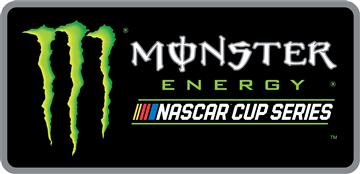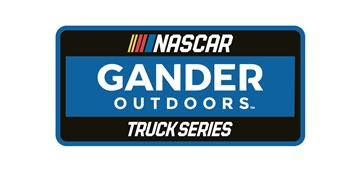Dave "The Godfather" Moody: Part Two
Recently Dave “The Godfather” Moody generously allowed me to ask him a few questions about his career, his life, and his views on NASCAR. If you missed the first part, click here.
Not only does Dave Moody call races, but he fields a Super Late Model team with buddy Jim Gallison, also from Vermont. “He and I got to know each other 30 years ago, maybe?" Moody recalled. “Messed around a little building and running enduro cars, just old junk cars and things like that. And I worked with him a little bit and helped him out as best I could on his late model team up in Vermont. And after four or five years of doing that, racing cars together, he packed up and moved to North Carolina, here to Charlotte.”
After the move, the two kept in touch and when Moody made the move himself, they touched base again. Gallison had a super late model car that he was about to have to park because he couldn’t afford to run it, and Moody talked him into holding off for a bit. “I said, 'Heck don’t sell everything, I’m getting ready to head to Daytona here in a couple of weeks. Let me go down there and see if I can scrounge up a couple of dollars, and scrounge up a couple of parts deals and maybe we can figure out how to keep this thing afloat another season.' That was a couple of years ago.”
The team races when they feel like it. They don’t run up front much since they compete against teams with 10 times their budget, but Moody said, “We race the way we always did up home: we’re just in it for fun.You’d think the last thing in the world I’d need to do on an off weekend would be to go to another track, but it’s relaxing and I enjoy it. We don’t get too down about the fact that the guys who have more money in their transporters than we have in our entire whole operation, they kick our tails pretty good and when we show up at the track, we know that’s going to happen. But at the end of the day with the possible exception of the guy who won the race, I don’t think anyone has any more fun than we do.”
A balancing act
So Moody calls races for MRN around the country, has a radio show five days a week, and has a super late model team. How does he balance it all?
“Not very well some days.” Moody said. “There’s a lot of stuff going on. I've got the website I do a lot of writing for. (Godfathermotorsports.com). Quite honestly, I don’t do that because I make any money off it. My first job out of college was as a sports writer, not an sportscaster. I was a writer before I was an on-air guy, and I enjoy it. It’s something that I like to do and I think I’m reasonably, halfway decent at it, so I do that as a labor of love and that takes a lot of time.”
He went on to explain, “Obviously the MRN stuff takes a lot of time, and the Sirius Speedway deal, it’s only four hours a day in terms of when the red light is on, but it’s probably another three or four worth of prep work because believe me if there’s something about the race weekend that you don’t know, one of those callers will ask you about in the first three minutes and you sound like a trained monkey. And I don’t like sounding like a trained monkey so there’s a lot of prep work there.”
Sirius Speedway Legends
 While the additional work must be daunting, the show has its rewards. The part Moody considers “absolutely the best thing we do” is Sirius Speedway Legends.
While the additional work must be daunting, the show has its rewards. The part Moody considers “absolutely the best thing we do” is Sirius Speedway Legends.Every Thursday, the last hour of the broadcast is devoted to Moody interviewing the biggest names in the sport’s past, from those who have retired, like Cotton Owens and Janet Guthrie to those still involved, like Rick Hendrick and Jack Roush. Moody and his crew have preserved the stories of some of the sports' biggest icons.
During those early days with Sirius, the broadcast team “started sitting down...and at first it was really 20 minutes, or half an hour, with Don Garlits and Junior Johnson and Al Unser.” The team realized quickly that 20 minutes just wasn't enough and they expanded it to an hour.
“There’s a huge difference between telling someone’s story, and having them tell their story in their own words.” Moody explained. “It’s the most fun that we have and it’s the most gratifying thing that we do. Honestly, we've been doing them for long enough that the interviews that we've done, some of the subjects of those interviews have now passed on We have interviews with Benny Parsons, we have an interview with Jim Hunter from NASCAR. We just reran the other day, the day he died, our Legends interview with Chris Economaki, It’s bittersweet, for sure, but it’s amazing to be able to go back sometimes in some cases years after they left us and listen to them tell their stories in their own words.”
“It’s like finding buried treasure, to be able to, on a Thursday afternoon, say, ‘Okay everybody, settle in, and we’re going to spend the next hour listening to our dear friend Benny Parsons, who's been gone so many years now, tell his own story. It’s really special to be able to go back and do that.”
“The thing about it is, none of us is going to be here for ever. And every time we do one I say, 'I'm glad we did this while there’s still an opportunity to do it.'"
The Godfather's fantasy team
Considering his knowledge of the pioneers of NASCAR, I asked Moody that if he were to pick a fantasy team from the early days of NASCAR, who would it be?
He hesitated for a moment, then said, “I grew up a Richard Petty fan, but if I had to pick a driver to put in my car, from the “older” era to put in my race car, I’d have to flip a coin between Pearson and Yarborough. There was nobody smarter than David Pearson. You never heard from Pearson until 25 to go and then all of a sudden there he was, knocking on the back door of the leader and winning the race. There was nobody smarter than Pearson and there was nobody tougher than Cale. If it came down to just manhandling his way on a 110 degree day at Darlington. If you needed a guy to come from 15th to win the race with 20 laps to go there was nobody tougher than Cale.”
What about the next generation of drivers? Who would he pick among the next class of NASCAR stars?
“Boy, I tell you, that’s a tough one, because there are a lot of really talented kids right now.” Moody said. “And it drives me nuts when people say, 'Well, talent doesn't matter anymore, it’s all about who’s got the most money.' Well, talent does matter. Because Kyle Larson’s parents didn't have a ton of money. Darrell Wallace parents didn't have a ton of money. Corey LaJoie’s parents -I mean, I watched his granddad race, I called races 30 years ago when his dad was racing on the old NASCAR North circuit. You know, I've known Corey LaJoie before he was Corey LaJoie. I knew his parents before he was born. Corey LaJoie...Randy and Lisa LaJoie, they don’t have a ton of money. And all those kids? They’re talented, and they’re getting there based on talent. So I’m really excited.”
“For my money, Kyle Larson is as talented as anyone I've seen in the last 20 years, and Darrell Wallace Jr. is just going to be a massive, massive star in this sport. He’s got all the tools. He’s a huge talent at the wheel, he’s a good-looking kid, he’s articulate, he’s glib, he’s not nervous in front of the cameras...he’s the total package.”
From the past to the present.
With the Godfather on the phone, of course I had to ask about the current state of the sport. What does he think of the Nationwide Series? Moody said, “I think it's in transition. It went from being a division where, as you know, on any given week a dozen to 15 Cup guys would come in and steal all the bacon. I think that’s coming to an end now.”
It’s his opinion that since NASCAR isn't allowing Cup drivers to race for Nationwide championship points that the “vast majority of them now have gotten out of the Nationwide series.” He allowed that some remain, but most aren't. “I think that’s a really good thing on one hand, because it’s allowed Ricky Stenhouse to become a star. It’s allowed Trevor Bayne to become a star, although the Daytona 500 helped out with that. It’s allowed guys like Elliott Sadler to have a place to go to, to prove they can still drive the hell out of racecar.”
Moody explained, “I like the fact that the Nationwide series now has a personality all its own, it’s no longer ‘Cup Lite,’ but the downside to that, though, is that they don’t seem to be selling as many tickets without the big stars. And that’s the problem because without race fans, we don’t have races. They’re not selling, at least I don’t think they’re selling, as many tickets on Saturday as they did with the Cup guys in the race. Like with everything else, there’s a positive and a negative.”
What about the NASCAR Camping World Truck Series? “The Truck series, they've got everything working in their favor as far as good racing. Because the vehicles are about as aerodynamic as a brick, so it’s all about mechanical grip. The races are so short, that they've got to be on the hammer from green to checkers. You know, they don’t have 15 opportunities to go to pit road to tweak on them and make them better. So it’s just a fact of life that these guys have got to drive a truck that’s not working right. They've got to get their elbows up in the air and they've got to overcome a bad truck with a great driver. Which makes the truck series exciting. Their races, pound for pound, are the best in NASCAR”
But of course, there’s always a negative. “The problem is, they've evolved to a point they can’t race at South Boston, they can’t race at Hickory, or if Flemington was still around where they used to race. They can’t race at a short track in front of 8 or 10 thousand people. They can’t get paid enough at tracks of that size. And unfortunately, the big tracks don’t put enough people in the seats for them to work the way they should. They’re too big for the little tracks and they’re too small for the big tracks. And without blowing up the series and starting over with a new rules package that allows them to race profitably for about have the cost, I’m not sure how to fix that. I’m real glad that I’m not upper level executive with NASCAR tasked with what to do with the truck series. because I think they’re at a crossroads right now, and I don’t have any idea where I would go if I were them.”
That left the Cup series, and I wondered if he thought that the same kind of fix that improved oval racing for the IZOD IndyCar series could work for Sprint Cup?
Moody said, “I honestly think that’s where NASCAR is heading. You know, based on what I’m hearing about some rules tweaks for next year. I think...I mean, nobody named France calls me to ask what I’m thinking or to tell me what they’re thinking...but it seems to me at this point like the direction they’re heading is...You know, there are two kinds of grip. Aero grip and mechanical grip. It used to be all mechanical grip. Whatever aerodynamics we had were because people just kind of made a mistake and hung the body the wrong way. Nobody knew what they were doing. Now it’s all aero.”
His take on aero vs. mechanical grip: “The problem with aero is that it only works for the first guy in line. Mechanical grip works for the first guy, the fifth guy, the twenty-fifth guy. And I think NASCAR now seems to be pretty focused in on the belief that we've got to move away from this aero wind tunnel junk and get back to those four pieces of tire touching the asphalt. We've got to get away from aerodynamic grip and get back to mechanical grip because when it’s mechanical grip people can pass people, not just the first car in line.”
In closing, I tore a page from Moody’s book. Every Speedway Legends interview ends with him asking the person “Nobody lives forever. We’re all going to be gone someday. How do you want to be remembered?” or words to that effect. I posed that question to the Godfather.
He said, “I don’t know...I guess if people think of me as a guy that never really got past being a race fan. You know, the first time I ever saw a stock car race, nothing ever had grabbed onto me like that, and I've never lost that, and I hope I never do. No matter how many times I broadcast the Daytona 500, the Southern 500 or whatever, still, when somebody grabs that microphone and does, ‘Gentlemen, start your engines,’ it still makes the hair on the back of my neck stand up.”
“Is it cool that I got to interview Richard Petty? Absolutely. Is is cool that I called Darrell Waltrip coming off Turn 4 to win the Daytona 500 for the only time in his career, ABSOLUTELY. And I love my job, I wouldn't do anything else in the world. I’d do it for nothing if they couldn't pay me anymore, but at the end of the day, I was just a race fan that was lucky enough to spend my life doing what I love to do best.”
Many thanks to Dave Moody for sharing his story and his photos with Skirts and Scuffs. And special thanks to his wife, for allowing me to monopolize his time right after he got home.
Visit his Facebook pages: Godfather Motorsports, Dave Moody's Fan Page, visit his website at www.godfathermotorsports.com, and follow him on Twitter @DGodfatherMoody. And of course, tune in to SiriusXM Speedway weekdays from 3pm-7pm Eastern (SiriusXM NASCAR channel 90) or listen to the MRN race broadcasts.
Janine, aka Lisa or LJ, Cloud, a fifth-generation Texan, lives in Houston and considers Texas Motor Speedway her home track.
She's been a part of the Skirts and Scuffs team since May, 2011, going from contributor to media rep, photographer, and associate editor covering both NASCAR and IZOD IndyCar. Janine considers it a privilege to represent the site at the track and to share with readers the excitement of the world of motorsports.
Follow her on Twitter @ljc777.
Dave "The Godfather" Moody: Part Two
 Reviewed by Janine Cloud
on
Saturday, October 20, 2012
Rating:
Reviewed by Janine Cloud
on
Saturday, October 20, 2012
Rating:
 Reviewed by Janine Cloud
on
Saturday, October 20, 2012
Rating:
Reviewed by Janine Cloud
on
Saturday, October 20, 2012
Rating:


.jpg)





